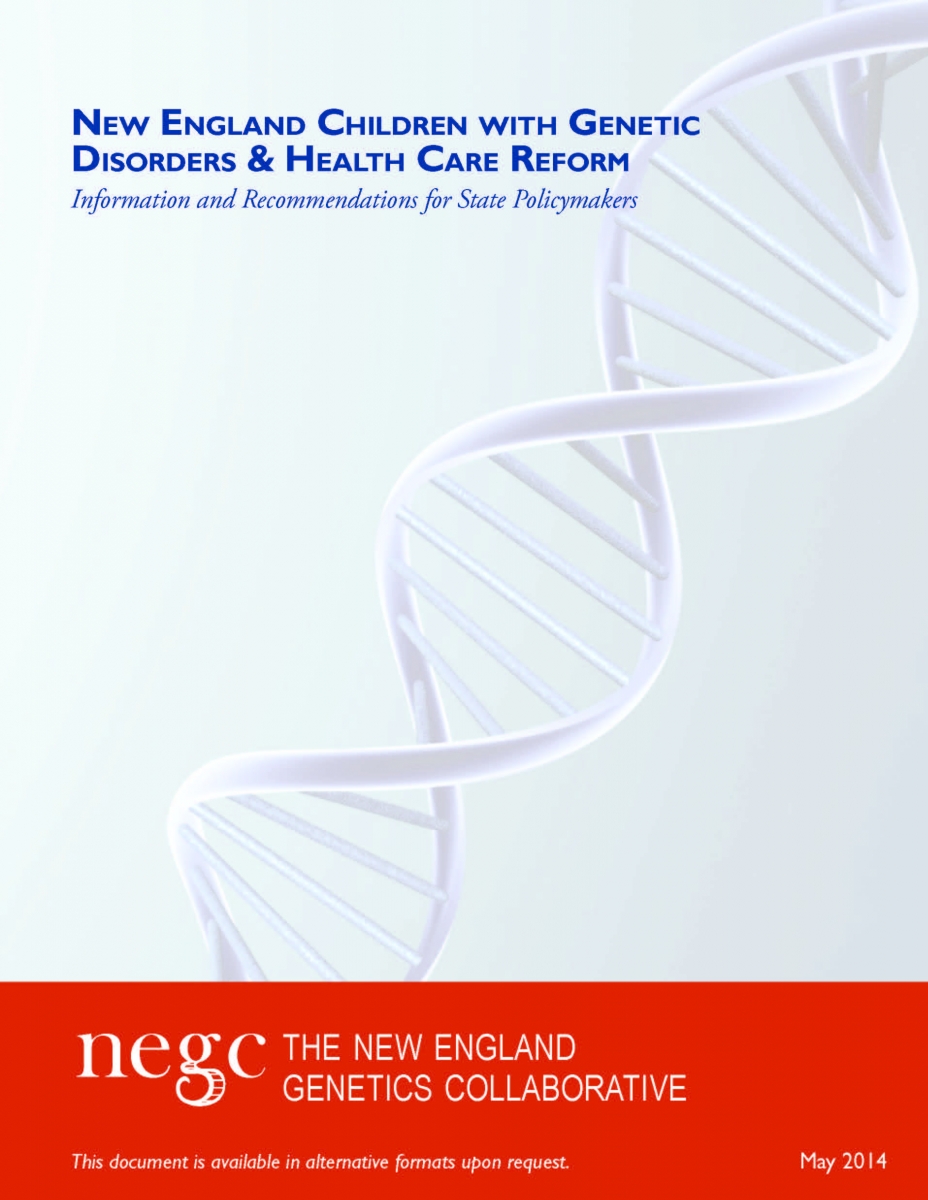UNH Report: Coverage Gaps in the Affordable Care Act Put Children with Genetic Disorders at Risk

DURHAM, N.H. – Although the 2010 Patient Protection and Affordable Care Act (ACA) includes many advances to healthcare access for uninsured Americans, state-level implementation of the legislation may perpetuate gaps in coverage that put the health and well-being of children with disabilities at risk, and could expose their families to overwhelming medical debt, according to a new report published by The New England Genetics Collaborative (NEGC), a program of the Institute on Disability at the University of New Hampshire.
The report, New England Children with Genetic Disorders & Health Care Reform: Information and Recommendations for State Policymakers, outlines the challenges of uninsured or underinsured children with genetic disorders in accessing the specialized and often expensive health care services they require.
Gaps in insurance coverage and benefits for children with genetic disorders can pose a serious threat to a child’s welfare and their family’s financial stability, according to the report. Supported by data gathered from an online survey disseminated to families and parents of children with disabilities throughout New England, the NEGC report defines both the clinical and financial implications of underinsurance. Survey respondents identified the greatest shortcomings of insurance coverage in the areas of habilitative services such as physical, occupational and speech therapy (40.3%); medical devices such as wheelchairs, braces and hearing aids (35.5%); and prescribed medical foods including nutritional replacements and feeding devices (32.4%).
“While the Affordable Care Act is intended to improve coverage for the underinsured, the Essential Health Benefit categories established by the law are built on existing coverage models and could potentially replicate current gaps in health benefits,” said Monica McClain, PhD, Co-Director of the NEGC. “State policymakers who wish to be leaders in the implementation of the ACA must take action to ensure that children with genetic disorders and their families are not left behind.”
The report also contains recommendations for state policymakers regarding gaps in insurance benefits, identifies opportunities for improving coverage and availability created under the ACA, and lists resources for both policymakers and consumers including family leadership organizations, state insurance regulators and centers for health care reform.
The New England Genetics Collaborative (NEGC) works to improve the health and social well-being of those with inherited conditions through collaborations among public health professionals, private health professionals, educators, consumers and advocates in Maine, New Hampshire, Vermont, Massachusetts, Rhode Island and Connecticut. The NEGC, a program of the Institute on Disability, is funded by Grant No. H46MC24093 between the University of New Hampshire and the Health Resources and Services Administration/Maternal and Child Health Bureau/DSCSHN Genetic Services Branch.
The Institute on Disability (IOD) at the University of New Hampshire was established in 1987 to provide a university-based focus for the improvement of knowledge, policies, and practices related to the lives of persons with disabilities and their families. Its mission is to promote full access, equal opportunities, and participation for all persons by strengthening communities and advancing policy and systems change, promising practices, education, and research.
The University of New Hampshire, founded in 1866, is a world-class public research university with the feel of a New England liberal arts college. A land, sea, and space-grant university, UNH is the state's flagship public institution, enrolling 12,200 undergraduate and 2,300 graduate students.